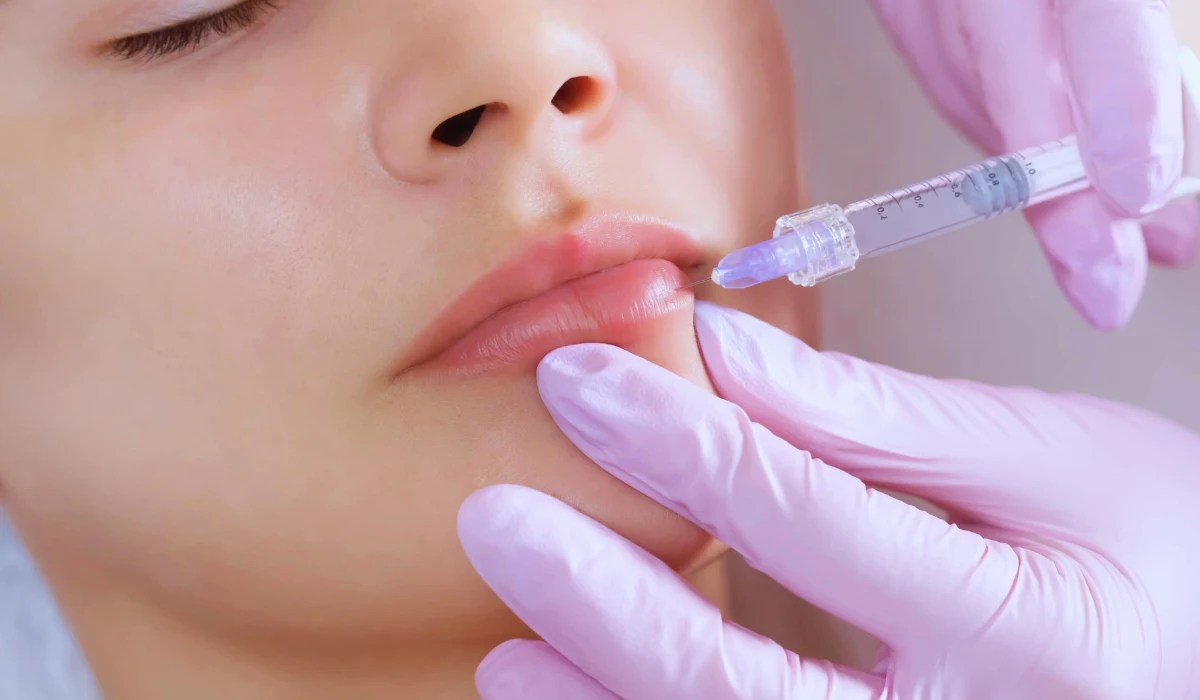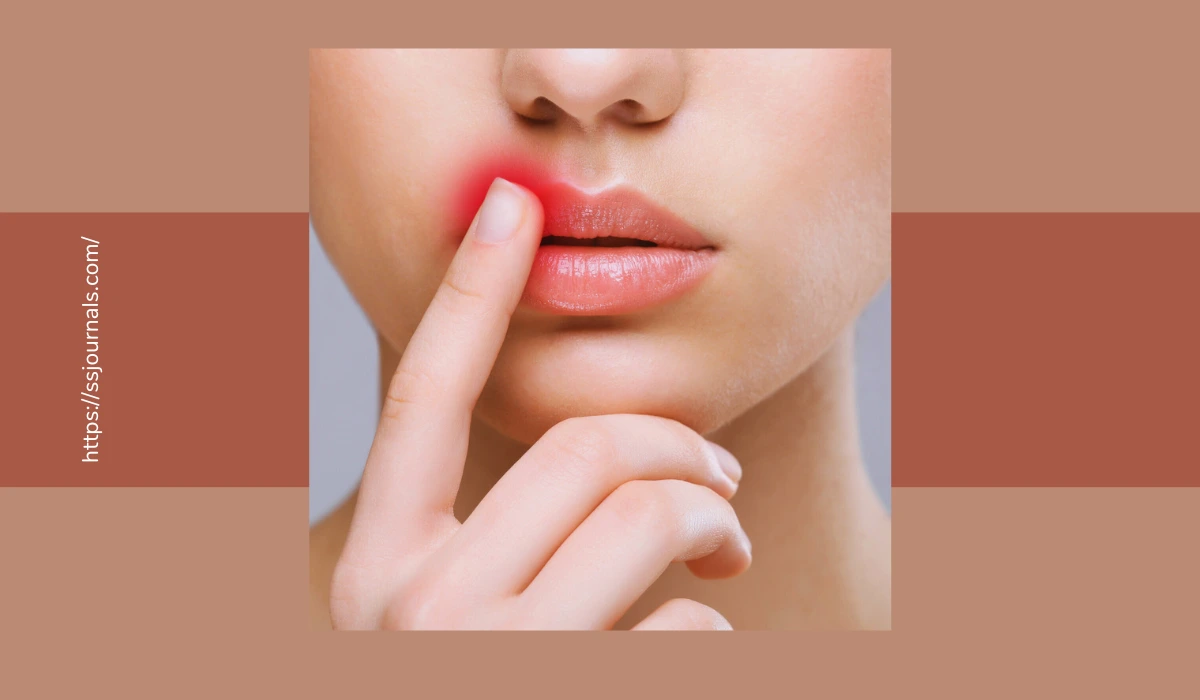Lip fillers, also known as lip injections or lip augmentation, involve the use of derma fillers to add volume and shape to the lips. The procedure involves the injection of various substances into the lips that smooth out fine lines and create a more aesthetic or youthful effect. However, it is not without its side effects and lip swelling seems to top the list.
Types of lip fillers
💹 Hyaluronic Acid-based Fillers(HA)– One of the most common types of fillers it includes Juvederm, Restylane, and Boletero balance that integrates itself into the skin.
✅ Collagen-based fillers– these are fillers made from the same substances as collagen in the human body.
✅ Calcium Hydroxylapatite– It stimulates collagen production along with the addition of volume.
🈯 Poly-L-Lactic acid– Sculptra, a product under this category is used for subtler results.
💹 Autologous fat transfer– Fat from one part of the body is injected into the lips making it plump naturally.

Why do your lips swell after getting lip fillers?
Swelling is a common side-effect of lip filler injections. This occurs for various reasons-
- Trauma from the injection– The injection itself can cause some trauma to the tissues leading to temporary swelling.
- Inflammation– The body’s natural response to any injection includes an inflammatory reaction. This occurs as the body heals and returns to normalcy.
- Increased blood flow– The injection of the filler can lead to increased blood flow to the treated area, contributing to the swell.
- Hydration–Hyaloronic acid fillers attract and hold water contributing to the overall volume in the treated area. This can result in a temporary increase in size and swelling.
How to reduce swelling after lip filler?
Reducing swelling after lip filler injections involves a combination of precautionary measures and home remedies. It’s important to note that swelling is a common and usually temporary side effect of lip fillers.
1. Immediate post-procedure care– It includes the application of ice packs and keeping in a posture. You must apply an ice pack to the treated area immediately after the procedure. Use a thin cloth to wrap the ice pack to avoid direct contact with the skin. Apply for 15-20 minutes. Additionally, keep your head elevated for the first few hours after the procedure. Use an extra pillow while sleeping to prevent excessive swelling.
2. Hydration and Nutrition include regulating what you eat and drink– Firstly drink some water to keep hydrated and flush off the toxins. Limit alcohol and caffeine intake as they can contribute to dehydration. Moreover, you could eat food rich in antioxidants such as fruits, vegetables, and Omega-3 fatty acids.
3. Medications– Non-prescription pain relievers like Ibuprofen may help alleviate the pain and reduce the swelling immediately. You could also use Arnica supplement or gel to help reduce bruising and swelling.
4. Topical treatments– You could use arnica gels and cold creams specially prescribed to reduce the swelling in the area. However, do consult a doctor before applying anything.
5. Avoid aggravating factors– Do not expose yourself to the sun, which includes sunbaths, saunas, and direct sun exposure immediately after the procedure. You should also avoid straining for 24-48 hours. In case you are on blood thinners, you might want to lay off them and talk about this to your healthcare professional.
6. Patience and Time– Swelling is a normal part of the healing process. Allow time for his body to adjust and follow the post-procedure protocol.
Other side effects
They are well-tolerated but like any medical procedure, they have potential side effects.
🔸 Redness and tenderness- redness and tenderness at the injection site are normal and usually resolve within a few days.
🔸 Pain and discomfort– Mild pain or discomfort at the injection site may occur but is typically temporary.
🔸 Asymmetry– In some cases, there may be slight asymmetry or unevenness in lips. It could be easily adjusted with another filler or by dissolving the excessive filler.
Conclusion
It’s crucial to have a thorough consultation with your healthcare provider before undergoing the procedure to discuss potential side effects, your medical history, and expectations. Choose a qualified and experienced professional to perform the injections, and be diligent in following post-procedure care instructions to minimize the risk of complications.

